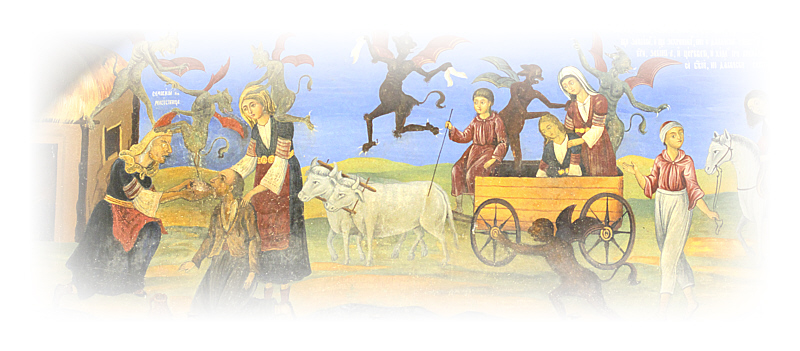Medica

The study of folk medicine in its multitude of aspects with an emphasis on the application of theory of medicine narratives (from beliefs and applied information and narratives about old perceptions of illnesses, e.g., malaria, suspended death, to the internationally topical material of medicine narratives, ethnobotany and ethnopsychiatrics).
The research results are connected with the work of project holders Mare Kõiva, Piret Paal, Eda Kalmre, Renata Sõukand, Raivo Kalle. The topic was started in 2006 as an international and interdisciplinary approach, The sources for the study are databases, special websites, interviews. By the present time, research into folk medicine and related fields have become interdisciplinary, studied no longer only by folklorists and ethnologists, but also by scholars of medicine, pharmacists, anthropologists, psychologists, art theorists, etc.
From a pre-medicinal facilitating behaviour, folk medicine has become a way of life, in which treatment and methods are incorporated or subjected to life style strategies and have transformed into both the source of folklore as well as folklore itself. Many narratives have a high applicative value (themes and functions range from case histories to narrativity mediating the experience of rehabilitation and inscribing to a specific social group, such as, e.g., narrative experience tales of cancer patients, etc.). Next to analysing purely narrative information, this involves singling out the information that can be tested and used in product placement in cooperation with other disciplines. A fine example of the latter would be the forthcoming preliminary research of ethnobotanic material.
The first doctoral thesis "Treatises on folk medicine: the evolution of the term, the process of collection and research work in Estonia in the 20th century" was defended by Ave Tupits in 2009. The Thesis centers on the views the researchers held regarding safekeeping folk medicine materials and folk medicine as a research field in Estonian folkloristics as a whole during the 20th century.
Studies are supported by ESF grant 8137. “Internet. Processes of narrative, value and identity creation, reproduction and transformation” - the research area is online medicine, medical online communities and the illness narratiives, and conferences Medica.
Volumes of legends and incantations in the series "Monumenta Estoniae Antiquae", 2009-2013
Results are published in a series of studies on folk belief "Sator", in the series "Tänapäeva folkloorist", "Contemporary Folklore".
Databases:
Estonian folk medicine herbal database HERBA Compiled by Renata Sõukand ja Raivo Kalle. In Estonian
Lendvapärimus/ Witch-arrow tradition. Compiled by Mare Kõiva. Contains all related records, stories, charms and medical practice. Searchable by keywords. In Estonian.
EKM Fo , EFI
Photos Andres Kuperjanov
© 'mare 2010